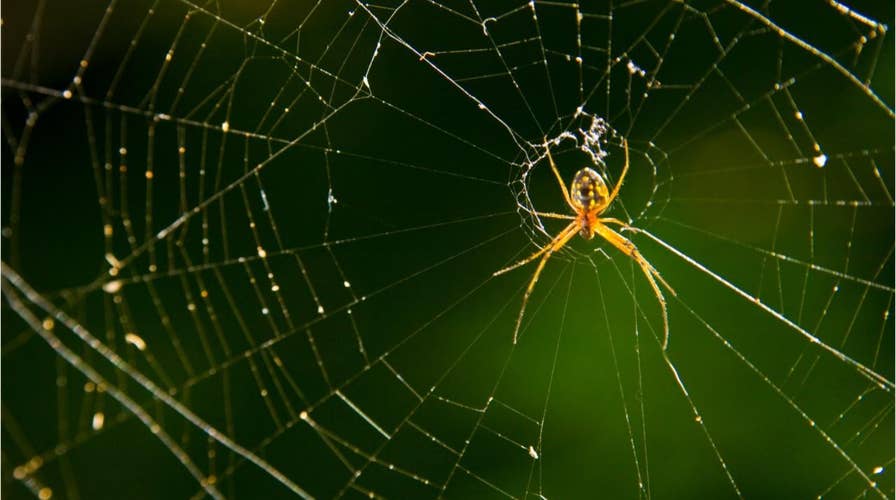Portions of an overcast sky in southeast Brazil are painted with tiny black dots — and no, it has nothing to do with birds.
Residents in the inland state of Minas Gerais recently reported seeing thousands of "raining spiders." The eight-legged critters appeared to be falling, though they were actually just crawling on a giant sticky web they created to capture prey.
João Pedro Martinelli Fonseca, a 14-year-old witnessed the "strange" phenomenon while visiting family in the area, reportedly told a local newspaper he was “stunned and scared” by the sight, particularly when at least one spider fell to the ground. He captured the bizarre scene on video, which garnered nearly 40,000 views on Facebook after it was posted on Jan. 4.
THOUSANDS OF SPIDERS COVER ARKANSAS HIGHWAY IN HUGE WEBS LIKE 'THICK CARPET'
"There were many more webs and spiders than you can see in the video. We’ve seen this before, always at dusk on days when it’s been really hot," the teen's grandma, Jercina Martinelli, told Terra do Mandu, according to a translation from The Guardian.
But don't panic just yet.
Adalberto dos Santos, a professor within the zoology department at the Federal University of Minas Gerais, told The Guardian that particular species — identified as parawixia bistriata — doesn't have venom that would harm humans. And the web, which is spun so thin it nearly appears invisible, is simply used to trap food.
It's possible, too, the massive nests could be used for mating, which is a common occurrence when hot or humid weather arrives. It's currently summer in Brazil, as it's in the Southern Hemisphere and experiences seasons opposite of the Northern Hemisphere.
TENNESSEE WOMAN BITTEN BY BROWN RECLUSE SPIDER ALLEGEDLY FINDS DOZENS MORE IN APARTMENT
This scene may look familiar.
In September, residents of a town in western Greece snapped photos of a 1,000-foot-long spider web that stretched across a local lagoon. Thousands of spiders were also seen clinging to webs covering the side of an Arkansas highway in November. Arkansas native Zach Riggs stopped to take photos and videos of the shocking scene.
Maria Chatzaki, professor of molecular biology and genetics at Democritus University of Thrace, previously told Newsit high temperatures create the perfect climate for reproduction.
"It's as if the spiders are taking advantage of these conditions and are having a kind of a party. They mate, they reproduce and provide a whole new generation," Chatzaki told the Greek news site, according to a translation from the BBC.
CLICK HERE TO GET THE FOX NEWS APP
But when the spiders are done mating, they don't tend to stick around long.
"There are huge numbers of male and female spiders mating [underneath the webs]," Chatzaki added. "The spiders will have their party and will soon die."

